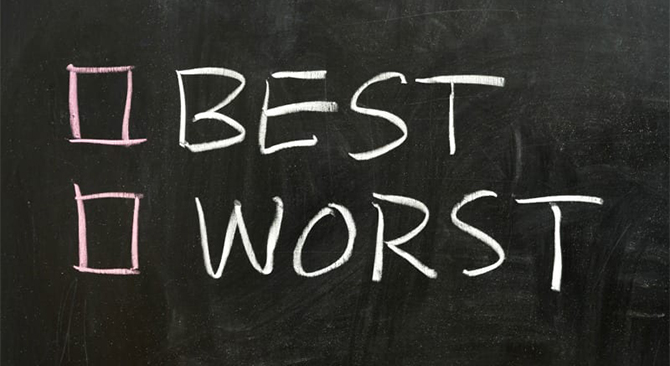
The boys and I have continued to explore life’s vexing questions, moving on from whether any of us want to “come back” to what, exactly, is the reason for making that decision. It occurs to me that the opening of Charles Dickens’ 1859 book, A Tale of Two Cities sums up the dilemma perfectly:
“It was the best of times, it was the worst of times, it was the age of wisdom, it was the age of foolishness, it was the epoch of belief, it was the epoch of incredulity, it was the season of light, it was the season of darkness, it was the spring of hope, it was the winter of despair.”
Living is not this or that; rather, it is always a mixture, this and that. In moments of difficulty, my father used to advise me, “you’ve got to take the bitter with the better.” Our lives are contextual, which is to say how we subjectively experience life’s objective ups and downs depends upon on which side of life’s equation we locate ourselves.
Objectively, the “worst of times” provides plenty to be unhappy about. Climate scientists report that the earth is warmer than it has been in 125,000 years, and the heating up isn’t over. Our human population of over 7-billion is consuming itself into oblivion, depleting the planet of rain forests, ocean life, and potable water, leaving our planet deeply wounded in the process. As for the “age of foolishness,” just take a look at national and world politics; antiquated forms of nationalism are still breeding armed conflict and continuing disputes about regional gods fuels mayhem and murder.
When it comes to “the epoch of incredulity” QAnon comes to mind, and the anti-scientific, superstitious beliefs about the dangers of the Covid vaccine. Marjorie Taylor Green’s “Jewish space lasers,” also fits the incredibility bill, as does the entirety of Donald Trump’s delusional nightmare. In many ways, the world is in “a season of darkness.”
On the other hand, a beautiful sunset recalls “the best of times.” Even in the midst of a global pandemic, myriad subjective pleasures abound. Our supermarkets are filled with foods from around the world, an offering unmatchable merely 100 years ago. Cell phones let us call friends and loved ones at any hour of the day or night, homes have electricity, water, indoor plumbing and toilets that flush. Our knowledge of the universe has never been greater; it is indeed “the age of wisdom” as we plumb the very underpinnings of the material world only to discover that it’s not material at all. “The season of light,” literally comes into our homes on flat screen TVs and iPads, illuminating our lives with entertainment and information.
“The spring of hope” keeps us going, particularly combined with our impressive powers of denial. For those of us with children and grandchildren, hope is a powerful force that overcomes “the winter of despair.”
That Dickens articulated the very same dilemma in which we find ourselves today speaks to the universality of the human experience. Some of us are doing very well, and others not so much. Even within a single life, the bitter and the better reliably present themselves. There is and has never been a perfect life, nor a perfect time or place to be alive. Our experience is determined, in large part, by how we choose to place our attention. Where’s yours?
time is an intellectual construct, not a reality. live in the here & now and time disappears… and the best and worst co-exist.